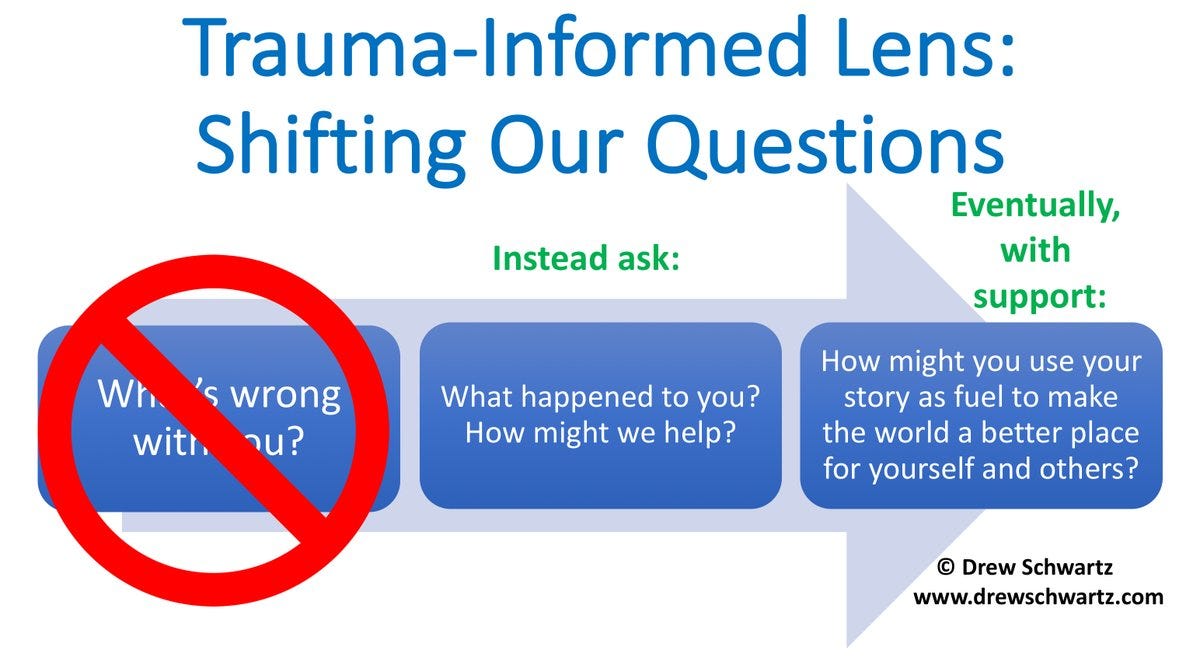At the start of my summer, I participated in #EdCampVoice, a 24-hour EdCamp using Voxer. One of the groups I joined was title "Trauma Informed Instruction". I was interested in this topic because I have been noticing more and more students in our schools who have experienced trauma in their lives that I could never even image. In the youngest of the grade levels I supervise, much of what these children have been experiencing has been manifesting itself in behavioral difficulties. What I've been most concerned about lately is that that our amazing teachers, who would do anything to support and care for their students, didn't have an understanding of why some children were behaving in specific ways, and more importantly, what to do about it. Our schools seem to be receiving some students we are ill equipped to support.
Through this EdCamp group, I heard about ACEs (Adverse Childhood Experiences) for the first time. This was a mind-changing discovery for me. ACEs outlines specific childhood experiences, 10 to be exact, which have been strongly correlated to long-term health risks, violence, and other life effecting consequences. The more of these traumatic experiences a child has faced, the greater likelihood their adult life is affected.
There is a great deal of information available about ACEs and several long-term studies that have been conducted, and I will link some of these resources below.
Getting back to my EdCamp experiences and ACEs, you can imagine what a lightbulb moment this was for me and my concern about the growing number of students having social and behavioral difficulties in our classrooms.
Fast forward to August, when I was fortunate to attend a screening of the documentary "Resilience" in my school district. This documentary shared studies conducted on ACEs and I was touched by the stories shared by people who have experienced a high number of ACEs.
My lens has changed this year. Instead of looking at a child having a meltdown or behavioral difficulty in school with the thought of "why are you doing this?", I have shifted to "what could have happened to you"? Spending the time to get to know students, their background, and even past traumatic experiences, can open the gate to support and understanding for our students. Sometimes our students can ask for help in the most unusual ways. It is our job as educators to make sure our students feel safe and secure, because we know learning can't happen without that. We also have a critical role to support our students, and realize we can never know all that they have experienced outside of our classroom or school building. We can change the path for students who have been affected by ACEs...it is our obligation.

There is so much more for me learn about this, and information can be readily found. Here are just a few links to get you started if learning about ACEs is new for you.
https://www.cdc.gov/violenceprevention/acestudy/index.html
https://www.edutopia.org/article/when-students-are-traumatized-teachers-are-too
Find your own ACEs score: https://acestoohigh.com/got-your-ace-score/


No comments:
Post a Comment